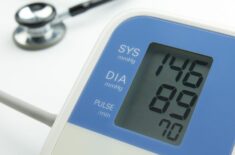Overview
You’ve been waiting, hoping, and dreaming of that positive result, only to be met with another negative pregnancy test. It’s a moment that can feel like a punch in the gut, leaving you feeling down, disappointed, and frustrated. You might even start to question if that positive result will ever happen.
We understand how deeply you desire to start or grow your family, and how each month can bring a rollercoaster of emotions. I’ve personally been through the TTC (trying to conceive) journey myself.
In this guide, we’re here to provide support, understanding, and information to help you navigate this challenging time. Let’s explore what a negative test might mean and uncover the possible reasons behind your missed period, so you can take the next steps with confidence and hope.
Understanding False Negative Pregnancy Tests
A 2021 study published in the Journal of the American College of Emergency Physicians (JACEP) Open showed that false negative pregnancy results are uncommon, only comprising around 1.6% of all tests. (1)
Surprisingly, only around 7% of the false negatives were linked to ectopic pregnancy. Most were intrauterine pregnancies (41.5%) or abnormal pregnancies (45%). (1)
Other researchers noted that some false negative results were due to multiple pregnancies (e.g., twins or other multiples). For example, a 2022 Cureus case study detailed how a woman who previously tested negative was found via ultrasound to be 8 weeks pregnant with twins. (2)
Other studies also found that false negative results were more common when the tests were done too soon, such as on the first day or week of a missed period. (3)(4)(5)
Can you trust the accuracy of home pregnancy test kits? What should you do if you keep getting negative results but feel you’re pregnant or you’re late? Do false positive results also happen with at-home pregnancy tests? When should you go to an OB/GYN or healthcare provider for medical advice? Are there other confirmatory tests you can take if you suspect you’re pregnant?
Keep reading because we’ll answer these questions below.
How Do Home Pregnancy Test Kits Work?
Home pregnancy tests detect the hormone hCG (human chorionic gonadotropin), which is produced after the fertilized egg implants in the uterus. The sensitivity of these pregnancy tests varies, with some detecting hCG levels as low as 15 mIU/ml. (3)
Are Home Pregnancy Tests Accurate?
At-home pregnancy test kits are fairly accurate, especially in recent years. Although they had a false-negative rate of around 24.3% in the 1980s, the number greatly decreased to around 1.6% in the 2020s. (1)(6)
However, the urine pregnancy test kits aren’t fail-proof. They still rely on the amount of hCG to detect a pregnancy, which depends on several factors (discussed below).
What Does A Positive Test Result Mean & Can It Ever Be Wrong?
- You might be pregnant
- It can also be a false positive (explained below)
False Positives & Early Pregnancy Complications Or Problems
Although rare, false positive pregnancy results can also happen, particularly if you’ve undergone fertility treatments (e.g., hCG injections). (7)
You can also get a positive pregnancy result with the following: (1)
- Ectopic pregnancy
- Molar pregnancy
- Chemical pregnancy and early miscarriage
What Does A Negative Test Result Mean & Can It Ever Be Wrong?
A negative result means either you’re not pregnant, or it’s a false negative. Reasons for false negatives include:
- Testing too soon: hCG levels might still be low.
- Testing later in the day: hCG concentration is highest in the morning.
- Errors in testing procedure: Not following instructions precisely.
- Low sensitivity test kit: Some tests require higher hCG levels.
- Expired test kit: Always check the expiration date
Can You Be Pregnant But Still Test Negative?
Yes, it’s possible. This can happen if your hCG levels are still too low to detect, especially in the early weeks of pregnancy. It can also occur with multiple pregnancies due to the “hook effect,” where very high hCG levels can cause a false negative.
Here are the typical hCG levels based on pregnancy weeks: (5)

How To Use A Home Pregnancy Test Kit
Kits can vary – some are even digital. Always check the manufacturer’s instructions and recommendations.
Most kits work this way:
- You pee in a cup or container.
- You use the test kit’s dipstick or dropper.
- Wait for the results after the recommended time.
Can Using Too Much Pee Cause A Negative Pregnancy Test Result?
It’s unlikely that too much urine can affect the test results.
When’s The Best Time To Take A Home Pregnancy Test?
- At least one day after a missed period or menstruation (with or without early signs of pregnancy)
- First thing in the morning, using your first urine
Can You Be Seven Weeks Pregnant And Test Negative?
It’s rare, but you might still test negative even at 7 weeks of pregnancy, especially if you’re having twins (extremely high hCG levels ‘overload’ the test kit). Previous cases have been documented, including a woman confirmed pregnant via ultrasound at 8 weeks. (2)
The 5 Top Reasons For A Negative Result
Testing Too Soon Or Too Early (Low Pregnancy Hormone Levels)
- Your level of hCG hormones might still be low for the test kit to detect (3)(4)(5)
Testing Too Late In The Day
- The amount of hCG is highest with your first-morning urine but can be lower at later times of the day due to dilution (more water in your urine)
Checking Results Too Soon Or Other Testing Procedure Error
- You might have taken the dipstick off the urine sample quicker than the required time (we suggest using a timer and following the manufacturer’s recommended time)
Test Kit With Low Sensitivity
- Some test kits require higher amounts of the hCG hormone to work (e.g., 100 mIU/ml), but your levels are still low (3)
Expired Pregnancy Test Kit
- Check your test kit’s expiry date; expired kits might no longer work
Twin Or Multiple Pregnancies & The ‘Hook Effect’ False Negative Test
Some researchers have noticed that multiple pregnancies might cause false negative results. (2)
Your body rapidly produces more hCG hormones if you’re pregnant with multiples. The extremely elevated levels of hCG might ‘overload’ the pregnancy test kits, leading to the so-called ‘hook effect’ that causes false negative results. (2)
The ‘hook effect’ is also believed to cause negative test results for: (2)
- Molar pregnancy (complete molar pregnancy causes abnormally high levels of hCG)
- Gestational trophoblastic disease (rare tumors that develop from the trophoblastic cells produced during pregnancy)
Can Drugs & Medications Affect Pregnancy Test Results?
Yes, some might. Pregnancy test kits can show positive results if you’ve had treatments that include hCG. For example, hCG injections used for fertility treatment might be detected by the test kit. (7)(8)
According to the Mayo Clinic, however, most drugs and medications (even those for contraception) are unlikely to interfere with pregnancy test results. (9)
Why Is Your Pregnancy Test Negative, But You Have No Period?
A missed period is among the most common pregnancy symptoms. However, late periods might also be caused by other factors. (discussed below)
Miscalculated Or Irregular Menstrual Cycle
It’s more difficult to predict menstruation dates when you have irregular periods. However, even with regular ovulation cycles, miscalculations can also happen.
Consider checking whether you have miscalculated your menstrual cycle and thought you missed your period.
Using Hormonal Birth Control
While contraceptives are unlikely to cause a false positive or negative pregnancy test, they can affect your hormone balance and make you skip ovulation. It can lead to skipped or late periods, making you think you might be pregnant even if you aren’t. (9)
Breastfeeding Can Affect Your Cycle
Postpartum recovery rates vary, but many breastfeeding moms experience a delay in getting their period back. It might be months before you ovulate again. (10)
Even if you get your period back, it might take a couple more months before your menstrual cycle returns to normal.
Long-Term Causes: Medical Conditions That Can Affect Your Menstrual Cycle
Some women’s health or medical conditions that might disrupt your menstrual cycle: (11)
- Anovulation or ovulatory dysfunction
- PCOS (polycystic ovary syndrome)
- POI (primary ovarian insufficiency) or early menopause (perimenopause)
- Menopause
- Thyroid problems (hypothyroidism or hyperthyroidism)
- Type 2 diabetes
- Cushing’s syndrome
- Cancer
- Reproductive system problems, including structural abnormalities (e.g., obstructions, scarring, or underdeveloped parts)
Although most medications, drugs, and treatment options are unlikely to affect pregnancy test results, some can disrupt your menstrual cycle and make you think you’re pregnant because you skipped your period. Some of these are: (11)
- Cancer medications
- Antidepressants
- Blood pressure or antihypertensive medications
- Antipsychotics
- Anti-allergy medications
Lifestyle Factors & Habits That Can Affect Your Menstrual Cycle
The following can also cause period delays or disruptions: (11)
- Extreme diet or an eating disorder
- Stress (especially chronic stress)
- Trauma and PTSD
- Sudden weight loss from excessive exercise
Possible Reasons For A Missed Period With Cramps
Here are possible reasons: (13)
- Delayed ovulation
- Endometriosis (abnormal growth of uterine tissues outside the uterus)
- Uterine fibroids and polyps
- Ovarian cyst
- Infections, such as PID (pelvic inflammatory disease)
What To Do After Taking A Pregnancy Test
If you are unsure of your test kit’s results or simply want to confirm them, you can go to the lab for a blood test. It can provide the most accurate results, even if your hCG levels are still low.
When Should You Contact Your OB/GYN Or Healthcare Provider?
- When you get a positive pregnancy test: for a prenatal checkup, ideally with a doctor from the obstetrics/gynecology department:
- When you’re TTC (trying to conceive) but keep getting negative results: for fertility considerations (including work-up and possible treatments)
Where To Get Free Pregnancy Tests
- Local health units or community centers
- Family planning clinics
- Adoption service agencies
- Campus health services
At-Home Pregnancy Test Kits To Consider
You’re Not Alone
A negative pregnancy test can be confusing and frustrating, but understanding the reasons behind it can help you navigate the TTC journey. If you’re ever in doubt, consulting with your healthcare provider can offer clarity and next steps. Stay hopeful and informed, and remember, you’re not alone in this journey.
References
(1) https://www.ncbi.nlm.nih.gov/pmc/articles/PMC8087939/
(2) https://www.ncbi.nlm.nih.gov/pmc/articles/PMC9699690/
(3) https://www.ncbi.nlm.nih.gov/pmc/articles/PMC8971111/
(4) https://www.ncbi.nlm.nih.gov/pmc/articles/PMC8156690/
(5) https://flo.health/tools/hcg-calculator
(6) https://www.ncbi.nlm.nih.gov/pmc/articles/PMC1650088/
(7) https://health.clevelandclinic.org/false-positive-pregnancy-test
(8) https://my.clevelandclinic.org/health/drugs/18559-human-chorionic-gonadotropin–hcg-injection
(9) https://www.mayoclinic.org/healthy-lifestyle/getting-pregnant/in-depth/home-pregnancy-tests/art-20047940
(10) https://www.healthdirect.gov.au/periods-while-breastfeeding
(11) https://www.mayoclinic.org/diseases-conditions/amenorrhea/symptoms-causes/syc-20369299
(12) https://www.spirehealthcare.com/health-hub/specialties/womens-health/what-causes-cramps-no-period-and-white-discharge/
(13) https://nortonhealthcare.com/news/cramps-but-no-period/












